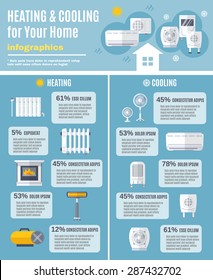Heatpump Vs Heating System - Which Is The Better Home Heating Option For Your Home?
Heatpump Vs Heating System - Which Is The Better Home Heating Option For Your Home?
Blog Article
Short Article Composed By-Austin Matthiesen
Lots of house owners recognize with heating systems, which warm homes with oil or natural gas and push hot air via ductwork. They are relatively inexpensive and can provide trusted heating even throughout a winter power interruption.
However, they make use of nonrenewable fuel sources and produce carbon monoxide gas and other air pollution. They likewise aren't as energy-efficient as a high-efficiency heatpump.
Cost
Usually, heatpump are extra budget-friendly to run than furnaces. They typically make use of electrical power and refrigerant to essence heat from exterior air, and afterwards transfer it right into your home. clicking here can take advantage of cheaper power rates during off-peak hours to additionally decrease your heating expenses.
Unlike heatpump, gas or wood-burning furnaces utilize burning to generate heat, producing flue gases into the ambience that can be harmful to your health. These furnaces are likewise much less energy-efficient than heatpump, and their greater operating expense can build up gradually.
Furnaces are extra complicated than heatpump and call for regular upkeep to make sure the correct function of all parts. In spite of this, they often tend to last longer than heatpump with a common life expectancy of two decades or even more. However, you'll need to consider the price of gas, fuel oil or timber and the extra tools required for setup and operation such as ducts and ventilation systems.
Power Effectiveness
Heat pumps have a higher energy effectiveness ranking than furnaces. These systems make use of electricity to feed on heat from the air, even in freezing temperature levels. They can likewise get rid of excess warmth from the home throughout warmer months and reuse it to cool the system. copyright specialists can assist you establish the most effective design for your home on environment and source energy expenses.
Furnaces burn fuel oil, lp, natural gas or various other sorts of nonrenewable fuel source to warm the air in the home. This air is after that dispersed with ductwork utilizing a huge follower. Furnaces produce greenhouse gases and require regular maintenance and tools upgrades to ensure secure operation.
The most significant benefit of a heating system is that it can be operated also in rough wintertime problems since it does not rely upon outside temperatures to warm up the air. Furnaces likewise have a longer life expectancy than heatpump and typically last 15 years. https://www.localnewsdigital.com/2022/06/14/duke-energy-offers-tips-to-save-energy-and-money-as-temperatures-rise/ can additionally be coupled with dual gas choices, which select the most effective heating option based on the weather.
Climate
Heatpump work well in modest climates and make use of less resource power than furnaces. Nonetheless, if your area is extremely chilly, you might need to buy a conventional gas heating system rather.
Furnaces give warm, cozy warm and usually provide fast heating to increase indoor temperature levels. These systems can be made use of with a variety of gas types, consisting of gas, lp, oil or power.
They eat more energy than heat pumps-- up to 3x as much-- and require ductwork that's pricey to mount or retrofit. They're also a lot more expensive to preserve, as they can cause air quality concerns and create greenhouse gas discharges.
If you're committed to minimizing your carbon impact, a heat pump is a good option for your home. They have less greenhouse gas discharges than heating systems, specifically if you choose an ENERGY STAR ® heatpump. Your regional copyright expert can describe the distinctions between these 2 heating systems and aid you make the very best choice for your unique requirements.
Individual Preferences
Furnaces can be very power efficient when powered by gas, propane or oil, but they aren't as energy reliable as heatpump in cold climates. They can likewise be much more costly to mount, needing gas lines and air flow systems.
However, furnaces often tend to need less upkeep, which can cause reduced continuous prices. They produce less greenhouse gases and are more reliable than heatpump during severe weather condition.
Electric heatpump are more versatile in creating interior comfort because they can also function as air conditioning system throughout warmer months. They can be easier to maintain, calling for just regular air filter modifications and occasional vacuuming.
If you like the convenience of a single system that does it all, consider a crossbreed home heating option that sets a heater with an electric heat pump. These systems can immediately switch between both home heating options based upon your home's requirements and temperature problems, optimizing performance and financial savings.